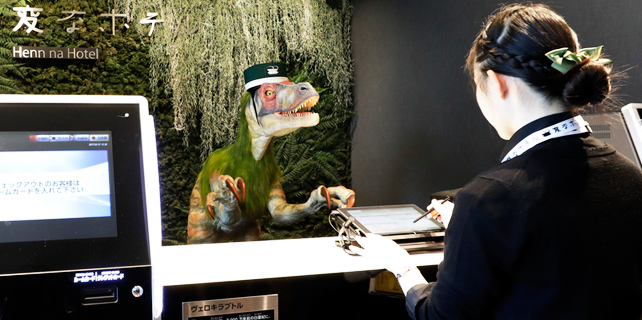Clicking away - movie directors in the making

The ubiquitous selfie stick is something that the ever-growing horde of selfie-takers, probably, can't do without.
Budding entrepreneur and "internet celebrity" Kenneth Choi has even gone the extra mile, having spawned a potential market to the tune of tens of millions of yuan out of the teeny-weeny gadget.
While a selfie stick can provide extra support for users to take selfies from a higher, farther and broader perspective, Choi has chipped in another function - stabilizing it so that users can have a smooth video taken in a lively environment.
In taking videos, a stabilizer is nothing new, but it's normally a tool for the professionals, rather than rookies, and may not suit everyone due to its weight and high cost.
By combining the selfie-stick concept and new stabilizing technology, Choi believes, it can make everyone a director of their own movies.
Choi had spent six years conducting research and development before coming up with a three-axis, hand-held stabilizer for cameras and mobile phones.
The new stabilizer, or hand-held gimbal, transfers the automatic stabilizing and coordinating system of a UAV (unmanned aerial vehicle) to hand-held equipment, explains Choi. Armed with the experience of having been a UAV agent himself, he's thus familiar with the technique.
Choi founded SwiftCam Technologies Group Co Ltd in 2015 in Hong Kong with the goal of developing and marketing the gimbal.
The new device, called M4, consists of three motors, a positioner and a sensor - all on a stick-like device.
When the user is moving, the positioner can have the device fixed at the spot the camera has to be. The sensor can tell the angle and distance required while the motors offer the exact force needed from various directions.
Besides hardware, the equipment comes with an application, allowing more functions, such as automatic face tracking, remote control and different automated shooting modes.
In addition, M4 has a universal expansion interface, supporting a series of accessories, such as extra lights and tracing module, according to Choi.
The device also supports vertical shooting, a function that many hand-held gimbal developers have neglected. "We've come up with these functions, based on our own experience in video streaming and talking to many users."
Live video streaming among internet celebrities is becoming popular in Hong Kong and they need convenient stabilizing devices, says Choi.
As an internet celebrity, his Facebook has lured more than 80,000 followers.
"We've made several Facebook pages to attract potential users," he says. SwiftCam now targets mainly video fans in Hong Kong and Taiwan.
Yvonne Wong, vice-president of the Internet Professionals Association, believes the market for hand-held gimbal products in Hong Kong has high growth potential as the live video streaming industry flourishes.
"But, several well-known brands have entered our market, so new startups have to do a lot more to grab a slice of the pie."
World leading drone maker Shenzhen-based DJI launched its hand-held gimbal Osmo in 2015, while Guilin Feiyu Technology Inc, based in the Guangxi Zhuang autonomous region, has also joined the fray.
Choi, however, seems unperturbed. "We have various distribution channels. Firstly, we can sell them directly to our fans on Facebook, and we've also teamed up with electronics marketplaces, such as Fortress and Broadway."
But, that seems still not enough for the versatile entrepreneur. He has gone into partnerships with commodity retailers, such as children's clothing, as well as pet stores.
Internet video is not a form of entertainment - it has become a key channel for retailers to try to draw new customers, hold them together and get more of their products into the market - says Choi.
SwiftCam boasts having sold about 20,000 M3 units so far - their last version of the hand-held gimbal with a price tag of HK$1,200 each. Their new product, M4, will hit the market in April with a monthly sales target of 1,000 pieces.
"The hand-held gimbal has become a tool that can help users earn more money, so they're more willingly to invest in it," Choi points out.
The only barrier, it appears, is the price compared to that of the popular selfie stick.
"Perhaps, mass production could, one day, bring the cost down," he surmises.
grace@chinadailyhk.com
















